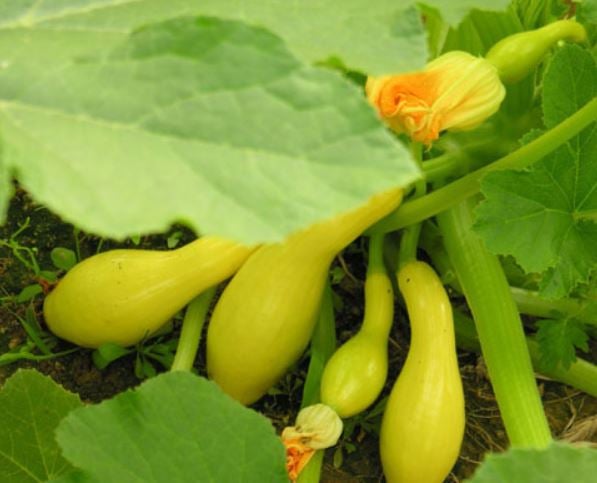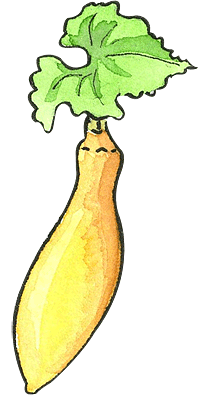Summer Squash
If you're concerned that you might have a brown thumb, plant some summer squash. The plants are highly productive and easy to grow. They can start producing edible fruit just seven weeks after planting seeds and, if you keep the fruit picked, they'll continue pumping out fruit right until frost. Summer squash come in a wide variety of shapes and colors. Almost all are best when eaten young and tender. Anything larger than a silver dollar should be considered fair game.

Summer squash are not as rambunctious as winter squash. Most grow from a central point, forming a bush rather than running through the garden the way winter squash like to do. They need full sun, consistent moisture, and rich, organic soil.
You can start squash by seed directly in the garden once all danger of frost has passed. The seeds can also be planted indoors in 3" or 4" pots a few weeks earlier. All squash resent having their roots disturbed, so if you're starting the plants anywhere other than right in the garden, take care to ensure the root ball does not fall apart while planting. The advantage to starting seeds in pots is twofold: You start the season with larger plants and you put out plants that are less vulnerable to striped cucumber beetles.

In regions where the striped cucumber beetles are present most places the best prevention is covering plants and newly seeded areas with garden fabric (row covers). Once the squash reach flowering stage, the covers come off to allow for pollination by insects. Squash plants have both male and female flowers on each plant. The two types of flowers look quite different, so observe them carefully.
Zucchini come in shades of green and yellow and with smooth or deeply ridged surfaces. Other good summer squashes include the little round patty pan type (in three colors) that look like flying saucers, yellow crookneck, yellow straight neck, cousa or Mideastern type and the long-necked Italian climber called Trombetta di Albenga.
Mulching your squash bed before the plants get big will keep down weeds and help retain moisture. Summer squash need an inch of water a week, either from the sky or from your hose.
Last updated: 03/27/2023
Print this Article:
Get the Dirt
Stay up to date on new articles and advice. Please fill out the information below.
